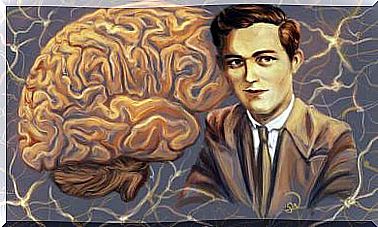Delirium In Alzheimer’s: Good To Know

Alzheimer’s is the most well-known form of dementia. Therefore, it seems that a deterioration of the cognitive functions is the heart of the cognitive symptoms of the disease. However, other symptoms may play an important role. Among many others, delirium can be observed in Alzheimer’s.
This neurocognitive disorder changes thought processes and attention. Usually, the physiological consequence is of a medical complication. In addition, Alzheimer’s consists of a degenerative process characterized by a loss of cholinergic nerve cells, which are important for the brain to function properly.
Delirium is a clinical disorder that affects attention and thought processes. However, we do not know much about this disease: Although many scientists systematically identify cognitive impairment and dementia as the main risk factors for delirium [2, 3], the mechanisms that contribute to the increase in this risk are unclear.
According to a study from 2009, manifestations of delusions can affect the thought processes. Therefore , delirium is manifested in 66-88% of patients with Alzheimer’s disease. These two pathologies thus go hand in hand. The study shows that delirium in Alzheimer’s accelerates a cognitive decline in the patient.
Pathologically, unclear brain dysfunction causes delirium. Delirium has several causes. Authors Blass and Gibson combine these causes into two possibilities.
- Drug
- Decreased brain metabolism.
Drug use causes delirium. It also seems that many of the conditions that can cause delirium and have a tendency to cause dementia in the long run. Lack of oxygen or hypoglycemia can, for example, cause brain dysfunction and delusions. If these conditions last a long time, they can cause permanent brain damage or dementia [5].

Nowadays , researchers classify delirium and dementia as two different conditions. Between 1930 and 1970, on the other hand, delirium and dementia were considered to be different stages of the same process. In 1959, for example, Engel and Romano wrote [1]:
Therefore, we can say that delirium and Alzheimer’s both relate to reduced turnover in the brain. In addition, both pathologies can be linked to an altered cholinergic function.
Patients with dementia may also manifest structural brain damage. In the United States, however, if a patient first diagnosed with delirium during an autopsy shows the pathological signs of Alzheimer’s , the diagnosis would change to Alzheimer’s disease.

Cholinesterase inhibitors can help manage delirium as well as Alzheimer’s. Therefore, it is also prescribed to Alzheimer’s patients. Cholinesterase inhibitors may be particularly useful for patients in a postoperative stage. Likewise, they can help patients who have obvious problems with attention.
In Sweden, Dr. Bengt Winbald has already conducted studies on this possibility. However, patients should take cholinesterase inhibitors with caution especially as cholinergic stimulants can cause bronchoconstriction or sick sinus syndrome (SSS). With this in mind, doctors should be moderate. More studies are needed to rigorously test whether cholinergic treatments protect the brain against metabolic diseases and their consequences.








